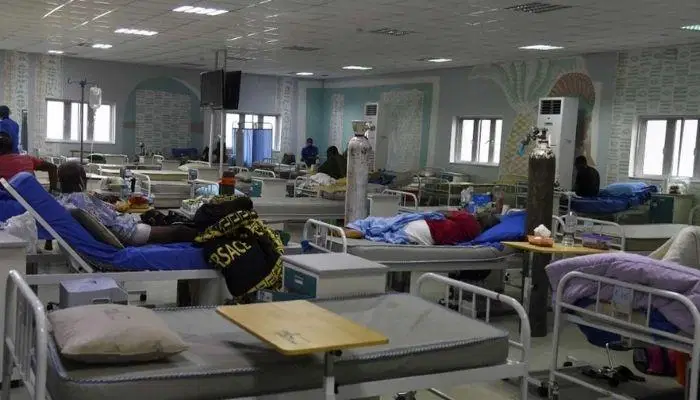Nigeria’s public healthcare system is under immense strain as the country faces an alarming shortage of skilled medical professionals. Hospitals across the nation are struggling to provide quality care due to insufficient personnel, outdated equipment, and overcrowded facilities.
Patients now endure long wait times and referrals to poorly equipped clinics, while critical cases often face fatal delays.
The mass migration of doctors, nurses, pharmacists, midwives, and other healthcare workers—commonly referred to as the “Japa” phenomenon—has deepened the crisis. Many professionals are leaving in search of better salaries, improved working conditions, and enhanced job security abroad. This growing exodus has widened existing gaps in an already fragile system, threatening Nigeria’s ability to deliver equitable healthcare.
According to a Vanguard report, between 2019 and 2024, at least 16,000 doctors relocated to other countries, while about 17,000 shifted jobs within Nigeria. Despite the country having approximately 300,000 healthcare workers, including nurses, midwives, and lab scientists, the number of registered doctors stands between 85,000 and 90,000, an insufficient workforce for a population of over 200 million.
The staffing crisis has severely impacted service delivery. The World Health Organization (WHO) recommends a doctor-to-patient ratio of 1:600, but Nigeria’s average is over 1:2,000. Similarly, the nurse-to-patient ratio stands at 1:1,160, far below the global standard of 1:5. Many public hospitals are operating at twice or three times the recommended capacity, forcing medical personnel to work beyond safe limits and compromising patient care.
Overcrowding has become a persistent challenge, with federal and state hospitals overwhelmed by more patients than they were designed to handle. Clinics and emergency wards are often packed beyond capacity, leading to chaotic conditions and delayed treatments. In urban centres, patients frequently wait for hours or even days to receive basic medical attention.
Beyond staffing shortages, systemic inefficiencies continue to plague healthcare delivery. Many hospitals lack adequate bed space, suffer from irregular water and electricity supply, and rely on out-of-pocket payments, pushing healthcare further out of reach for vulnerable populations. The deteriorating conditions are making public hospitals places of frustration rather than hope.
The ongoing brain drain poses a serious threat to Nigeria’s long-term health sector sustainability. Without urgent interventions such as better pay, improved working conditions, and strategic retention policies, Nigeria risks losing even more of its medical workforce.

